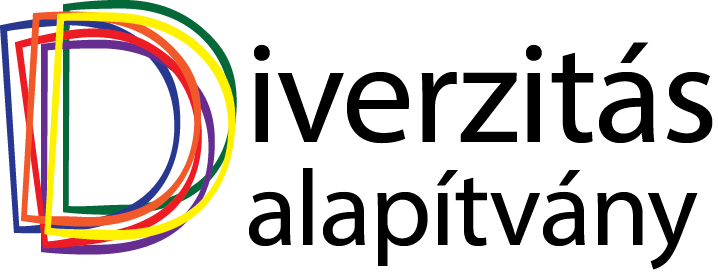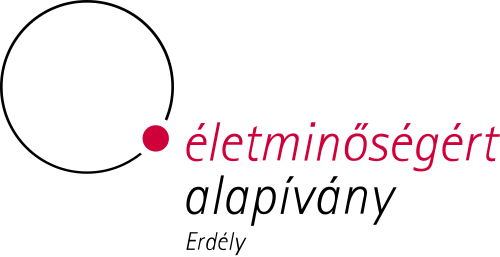Partners

Diversity Foundation
Our mission is to build an inclusive society that is ecologically responsible and sustainable. We believe that re-establishing connections between people and nature is an important resource for well-being of nature, individuals, and society.
Many of our projects are located in Gödöllő and the surrounding area, Central Hungary. Our activities include the elaboration and realization of training programs in the field of ecological farming, social farms and environmental awareness raising.
The foundation has a wide network of organic farming professionals, practitioners and researchers. We are operating a social farm in Gödöllő, aiming to provide learning opportunities for adults and children, and at the same time workplace for disabled and disadvantaged people. The farm is a place for volunteer programs and community events as well.
We are also helping the labour market re-integration of disadvantaged people with individual counseling and job placement activities, as part of the INCORPORA network in Hungary.

Hochschule für Agrar- und Umweltpädagogik Wien
The University College for Agrarian and Environmental Pedagogy Vienna (UCAEP) is the pedagogic center for the education of teachers and consultants in the professional fields of agriculture and forestry as well as environmental education. About 2.100 students study at UCAEP.
The University College for Agrarian and Environmental Pedagogy enables an occupational education based on scientific knowledge. Students acquire pedagogic, professional, and personal key competencies from the point of view of sustainability to face occupational and social challenges.
In this training, students acquire the necessary qualifications to teach pupils of Schools of Agricultural and Forestry Sciences as well as adults in further education.
In the study program of Environmental Education importance is attached to the qualification of students in the areas of environment, sustainable development, and pedagogy. This course qualifies students to teach in vocational secondary schools.
- Green Care – Master of Science: Students learn how to use the ability of animals and plants to enhance the health and the quality of life of human beings.
- Educational Management in Rural Areas – Master of Arts: Students learn how to use innovative teaching and learning methods to undertake the management in educational institutions or in consultant service.
These master study programs, which build on the existing expertise of students, provide students with the necessary tools for conducting scientific research.

Hungarian University of Agriculture and Life Sciences
The mission of the Department of Agroecology and Organic Farming (Institute of Rural Development and Sustainable Economy) is to explore the environmental, economic and social aspects of multifunctional agriculture, to develop sustainable systems and to convey knowledge about these systems of the highest quality beyond the technical contents.
The research team is committed to ensuring that students graduating from this university will be capable of systems-thinking, and have the essential agroecological, agronomic, technical, legal, economic, social and management skills. Conforming to the involved staff educational themes and teaching areas, such as organic farming, multifunctional farming, social farming (including green therapy), environmental and agricultural policy, etc., the key persons are experts in their fields.
With partners on almost every continent, MATE students (currently 14 000 students) and staff (2500 paid staff) can operate on a global scale to gain and share the essential knowledge for success in the globalized world.

The Foundation for Quality of Life - Transylvania
We are a relatively young nongovernmental organization, established in 2016 in the central region of Romania. We believe that human competence is the greatest factor influencing people’s individual quality of life and the development of civil society.
Being curious and open, learning, engaging in sustainable and innovative problem-solving projects, and experiencing cooperation leads to a life quality with high social impact.
Therefore, the role of the foundation is to bring together different stakeholders who are capable to take challenges for initiating transition and create community for transformation. Three main objectives were formulated by the members:
The organization is offering on the one hand personal consulting for exploring personal skills, and on the other hand training couarses in the field of ecological horticulture, gardening, and animal husbandry connected with social impact.
Rural development through education and cooperation aims to educate and develop a community of leaders who already manage or would like to manage agricultural cooperatives, social gardens, and social businesses so that they will be able to provide for the organizations the necessary resources to carry out their work.
The organization is cooperating with a Swiss organization offering small-scale funds for local and regional development, supporting small organizations, cooperatives, farmers, and women (mostly from the disadvantaged rural area) with knowledge transfer and small-scale financial support.

DISAA - Department of Agricultural and Environmental Sciences
DISAA has been involved in the last 20 years in the topic of healing garden design. It has wide experience in the planning, organization, and realization of horticultural therapy activities with people with fragilities (i.e. seniors, and children with Autism spectrum disorders). This experience is based on the methodological and on-field research made by the department research staff, also in collaboration with international partners, especially from the US.
The Department of Agricultural and Environmental Sciences (DISAA) develops its activities with a view to advancing knowledge, through scientific research, about farming systems, forestry, landscape, livestock, environment, and energy. DISAA’s research activity is based on a multidisciplinary approach aimed at promoting of effective and efficient management of complex rural and green systems. DISAA has a long tradition of successful research, both nationally and internationally. Moreover, DISAA is one of the leading centers for research and technical assistance in Lombardy in relation to Agriculture Engineering and landscape.
The University of Milan is a public teaching and research university, which is distinguished by its wide variety of disciplinary fields. It is one of the most important universities in Italy, with a teaching & research staff of about 2650 professors and researchers and approximately 65000 students.
The University of Milan is organized into 10 Faculties and Schools and 31 Departments, in almost all areas of knowledge:
- Humanities
- Law
- Political Economic and Social Sciences
- Language Mediation and Intercultural Communication
- Medicine
- Veterinary Medicine
- Pharmacy
- Exercise and Sport Sciences
- Science and Technology
- Agricultural and Food Sciences.
